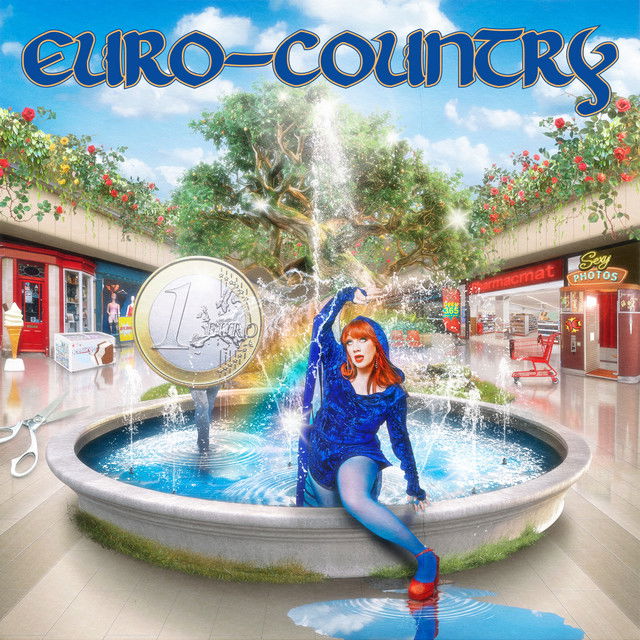Song Stories: CMAT: EURO-COUNTRY
2025 has been quite the year for Ciara Mary-Alice Thompson, better known as CMAT. She performed to one of the biggest crowds at Glastonbury in the summer. A set on the Friday that drew thousands to watch her and her ensemble, blasting through some of her most loved songs including 'Have Fun!', the pop-tastic ‘Take A Sexy Picture Of Me’, complete with everyone having a go at that viral ‘woke Macarena’ dance and generate one of the biggest sing alongs of the weekend with 'Running/Planning'.
One song that didn’t make CMAT’s Glastonbury set, however, was the opening and title track of her latest album, ‘EURO-COUNTRY’. Released just weeks after the biggest show of her career, the track explores the economic downturn that gripped Ireland following the 2008 financial crash.
A Reflection on the ‘Euro Country’
The song opens with an Irish-language introduction, unfolding as a stark reflection on post–Celtic Tiger Ireland. CMAT revisits the fallout of the crash through the eyes of her younger self, a child in a small town feeling increasingly detached from her cultural identity.
This sense of dislocation mirrors Ireland’s own struggle to reconcile its ancient past with a shiny, consumerist, and globalised future. Throughout the track, she weaves a web of references that span Irish mythology and tabloid pop culture: the legendary warrior Cú Chulainn sits alongside English TV personality Kerry Katona and Bertie Ahern, the former Taoiseach whose legacy remains a point of fierce national debate. CMAT has never bitten her tongue regarding Ahern, once famously vowing it was her "personal fucking mission" to ensure he never sees political success again.
Darkness Wrapped in a Melody
‘EURO-COUNTRY’ is arguably the darkest piece of writing in Thompson's catalogue. She confronts the devastating reality of the crash head-on, referencing the spike in male suicide with the chilling line: "I was 12 when the das started killing themselves all around me." These heavy themes are juxtaposed with snapshots of childhood alienation, mooching around shops, and a lack of identity, all delivered through her signature yodel-tinged vocals and a wash of Lana Del Rey–esque melancholia. This is CMAT’s greatest strength: the ability to pair brutal, home-truth honesty with hooks that linger long after the song ends. Her anger cuts through layers of electric guitar and organ as she calls out "all the big boys / all the Berties" who she believes warped the Ireland she once recognised.

The Political Mantle
Thirty years ago, the Irish music scene was a hotbed of politics and protest. With ‘EURO-COUNTRY’, CMAT picks up that mantle for a new generation. She isn't alone in this re-examination; Fontaines D.C. explored the version of Ireland they left behind on ‘Skinty Fia’, while Kneecap continue to chronicle life north of the border through their native Gaelic rap.
The song found itself at the centre of a "censorship" row when its first BBC Radio 1 broadcast cut the opening 45 seconds of the Irish-language spoken word. While the BBC denied intentional censorship, stating they played the edit provided by her label, AWAL. CMAT took to Instagram to clarify that the decision wasn't hers. "I don’t know who edited it out – that was crazy of them," she wrote, though the BBC has since committed to playing the full version.
The Real People Left Behind
In interviews, Thompson has been candid about the personal observations that fuelled the track. While her own family remained stable, she watched the estate around her collapse. "Everybody else... worked in construction or in shops, and they all lost their jobs," she recalled. "There was a year or 18 months where loads of the people I went to school with, their dads started killing themselves because they’d lost everything."
Writing for Far Out magazine, Lauren Hunter declared ‘EURO-COUNTRY’ "the most important political song of our times," noting that unlike other political tracks, the focus isn't on the "high and mighty overlords," but on the real people left to grapple with their identities in the aftermath.
It is an exceptional, gut-wrenching piece of music, and easily one of my songs of the year.
Thank you for reading
Jack